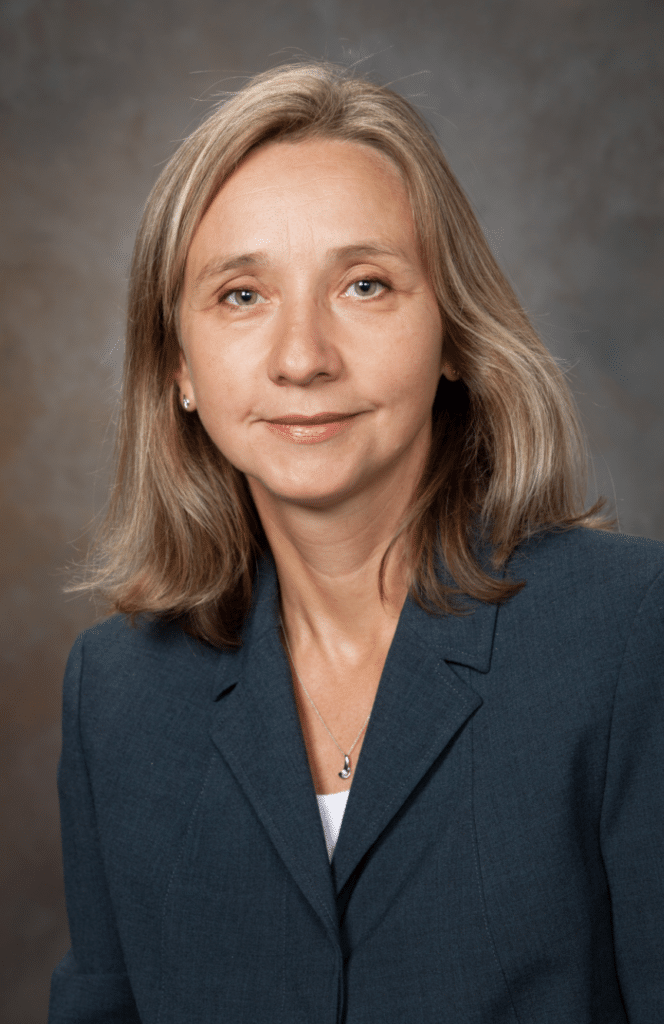
This week’s Meet a Mom interview is with Alla Vash-Margita, M.D., Chief of Pediatric & Adolescent Gynecology at Yale New Haven Children’s Hospital. A board-certified OB-GYN who has been practicing for 24 years, she recently launched a specialized Adolescent Gynecology and Endocrinology Program, which helps the many young women at risk for or dealing with Polycystic Ovary Syndrome (PCOS).
PCOS is a very common hormonal reproductive problem that can affect menstrual cycle, fertility and appearance if left untreated. We spoke to Dr. Vash-Margita (a Fairfield-based mom to two teenagers) about Yale New Haven Children’s Hospital’s unique program, why it’s so crucial to identify at-risk patients (and the signs of PCOS in girls), and more.
Can you please tell us a bit about the new Adolescent Gynecology and Endocrinology Program for PCOS patients at Yale New Haven Children’s Hospital?
Our new program is completely multidisciplinary. PCOS affects 10 to 15 percent of reproductive age woman, and it can have long lasting effects on their health if left undiagnosed and untreated. Our goal is to detect and diagnose as early as possible and address any concerns at an early age.
What are some signs of PCOS moms should be aware of?
The name itself is a misnomer—it has nothing to do with ovarian cysts, but actually overpacked follicles. The condition shows up in adolescent age with severe acne, abnormal hair growth (including on the upper lip, chin, belly), and irregular or missing periods. We diagnosis through clinical observations and blood tests, but we don’t make a diagnosis until 8 years have passed—until then we’d consider a girl at risk for PCOS.
How do you treat if someone is at risk or diagnosed with PCOS?
We address any concerns the girl may have, whether it’s acne, or an increase in hair or irregular periods. Our combined program offers a holistic approach – we look at the entire patient, including weight, exercise and sleep patterns. Ninety percent of the time being at risk for PCOS comes with metabolic syndrome, which puts the patient at risk for increased BMI, elevated cholesterol, or diabetes. This is where my endocrinology colleagues come into play.
What can PCOS lead to if undiagnosed?
Eventually it can lead to hypertension, diabetes, depression/anxiety, elevated cholesterol, sleep disorders and infertility. But again, intervention can have a big impact, and these are small lifestyle changes rather than medication—even just losing 10 pounds or 4 or 5 brisk 30 minutes walks per week.
When should a girl start seeing a gynecologist and what can she expect from her first appointment?
ACOG says a healthy girl should see a gynecologist for the first time at age 13 – and that’s not to do any kind of pelvic exam. We do a general exam like a pediatrician would. We meet a patient, get to know them, and talk about reproductive health.
Dr. Alla Vash-Margita sees patients at Yale New Haven Children’s Hospital’s Pediatric Specialty Centers in Trumbull and New Haven. To make an appointment or find a pediatric specialist, please call 877-YALE-MDS (877-925-3637), or visit Yale New Haven Health | Pediatric Specialty Centers (ynhh.org).
This story contains sponsored content.
